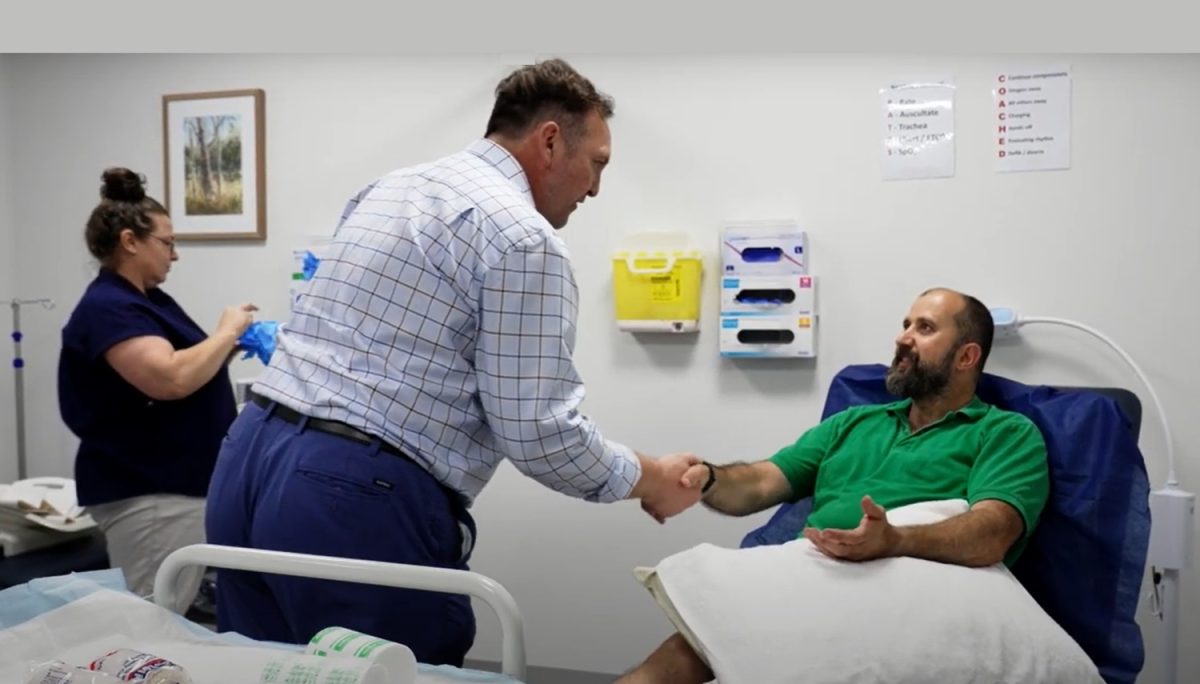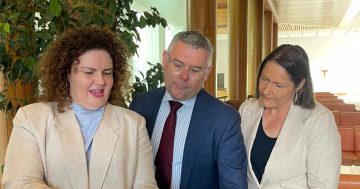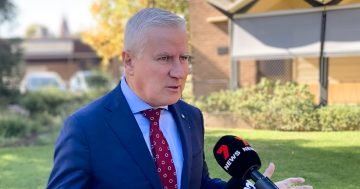
Private health insurance premiums will rise by an average of 3.03 per cent from 1 April. Photo: Department of Health.
Just as the economy starts to flatten and cost-of-living relief policies are implemented, Australians with private health insurance will be slugged with a more than three per cent average increase in their premiums from 1 April.
The 3.03 per cent average increase will keep premiums below the annual rise in wages, inflation (4.2 per cent and 4.1 per cent respectively in 2023) and social security payments (increasing in line with inflation).
But the annual increase is less than the reported six per cent increase that insurance companies were seeking.
Australia’s private health insurance industry’s peak representative body Private Healthcare Australia said health funds did not want to increase premiums by a single dollar, given the cost-of-living crisis, and the need for Australians to continue to get rapid access to healthcare.
But it says inflation is driving up the cost of everything health funds pay for, citing increases in health inflation of 5.1 per cent, medical and hospital services of 6.5 per cent, and a 10 per cent jump in health insurance payments for member claims over the past year.
“Health funds are walking a tightrope between keeping premiums as low as possible to maximise access to private health, and providing adequate funding for hospitals and frontline health workers to deliver quality care,” Private Healthcare Australia CEO Dr Rachel David said.
“Our hospitals need to pay significantly more for staff recruitment, power and food and the funds need to be able to cover these costs. Health funds are also paying more for essential services like cyber security and IT services to support billing and claims,” she added.
“Our strong private system is taking pressure off the public system, so public hospitals are free for those who need them most. Health funds are now paying for two thirds of all elective surgery procedures in Australia including over 80 per cent of hip and knee replacements and over 70 per cent of cataract surgery in the private sector.
“But in the current economy, it is becoming more challenging to keep private hospital care sustainable without increasing premiums.”
Health Minister Mark Butler said the increase in health insurance premiums would be much lower than the increase in the cost of other insurance products, which he said rose by around 17 per cent in 2023.
The premium changes will apply from 1 April, and each insurer’s average change will be displayed on the www.health.gov.au website.
Shadow Minister for Health and Aged Care Senator Anne Ruston questioned the timing of the rates increase, coming just days after the Dunkley by-election in Melbourne.
“The Albanese Government has prioritised politics over people, as it is confirmed they were waiting until after the Dunkley by-election to announce increases to private health insurance premiums,” she said.
“In the middle of a cost-of-living crisis, it is completely unacceptable that the Prime Minister would purposely provide Australians with less time to prepare for a price hike.
“We also know that the increase announced today is only based on the average industry price, so some consumers will be paying substantially more – with less time to budget or shop around.”
READ ALSO: ‘Essentially insider trading’: Minister looks to regulate irrigation water supply companies
But Mr Butler rejected the criticism.
“I wasn’t prepared to just tick and flick the claims of health insurers, as the Opposition was urging me to do,” he said. “I asked insurers to go back and sharpen their pencils and put forward a more reasonable offer for the 15 million Australians with private health insurance.
“While we know that any increase will be hard to bear during a global cost-of-living crunch, the Albanese Government has ensured that health insurance premiums will fall relative to Australians’ wages and Labor’s tax cuts mean all Australian taxpayers will get a tax cut on 1 July, so Australians earn more and keep more of what they earn.”
With regards to the timing of the announcement, Mr Butler said it had come after a period of negotiation, and that the timing precedent had been set by some of his Coalition health minister predecessors.
“Greg Hunt announced these increases in December and January for a few years,” he conceded.
“But if you look over the last 20 years, the Howard Government always announced these increases either in the last week of February or in the first two weeks of March. That was the case when we were last in government under Kevin Rudd and Julia Gillard.
“Sussan Ley when she was the health minister a few years ago, she announced in the first week of March.”
Original Article published by Andrew McLaughlin on Riotact.















